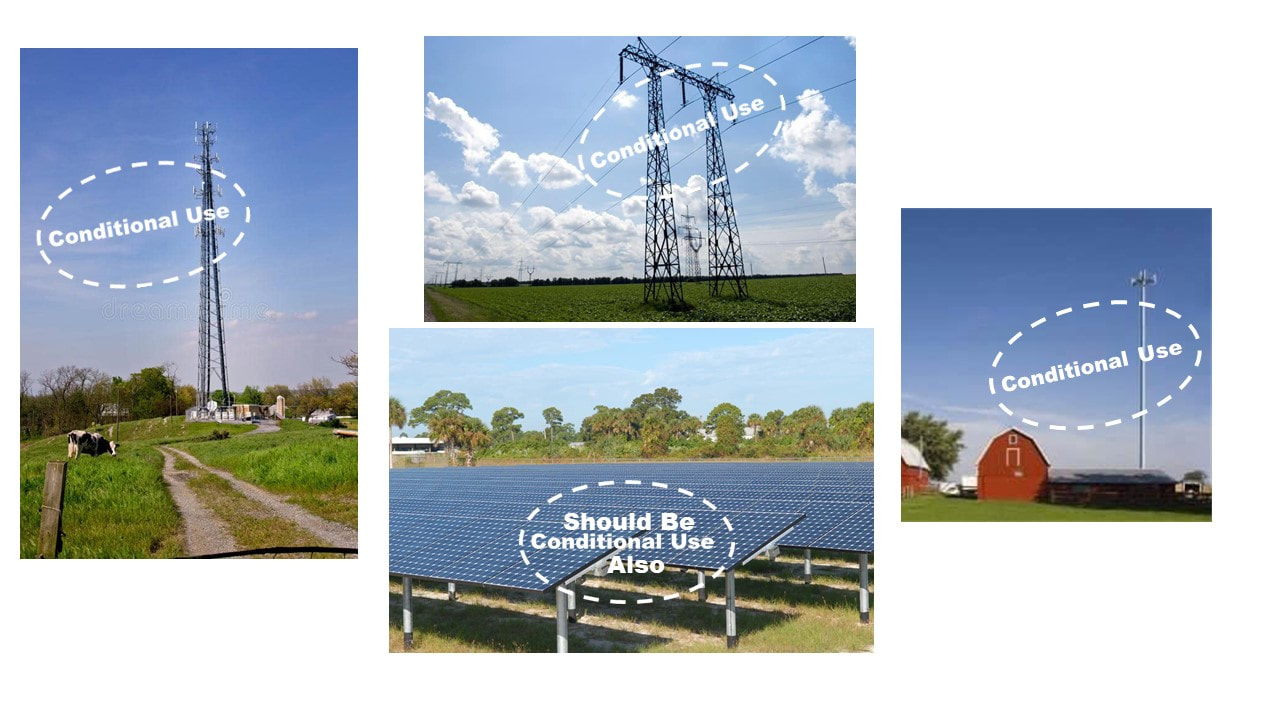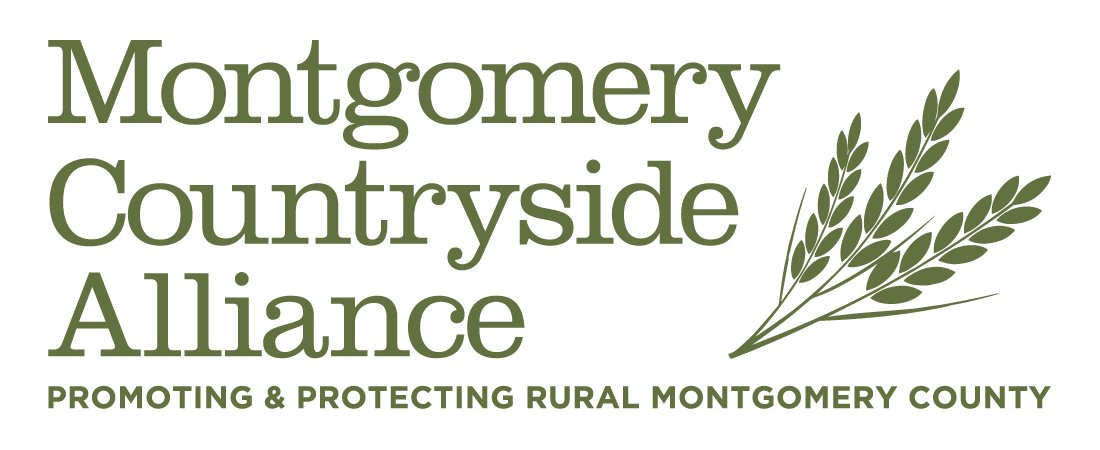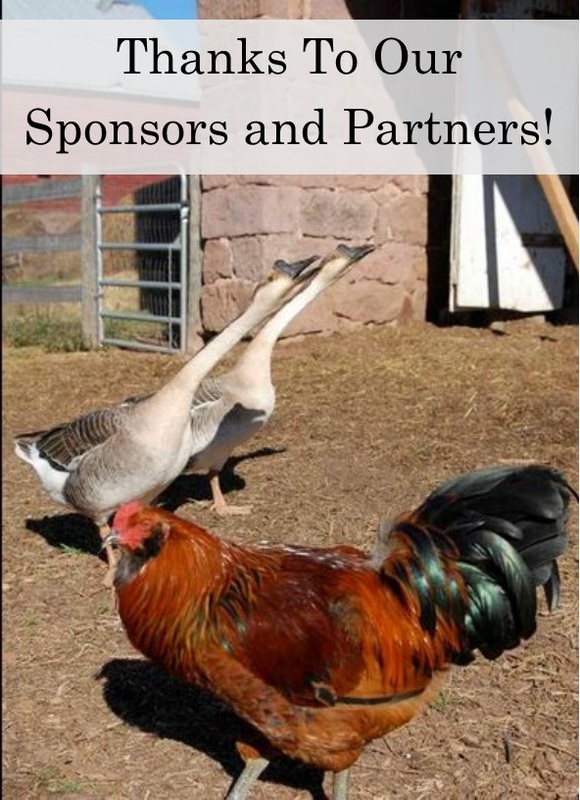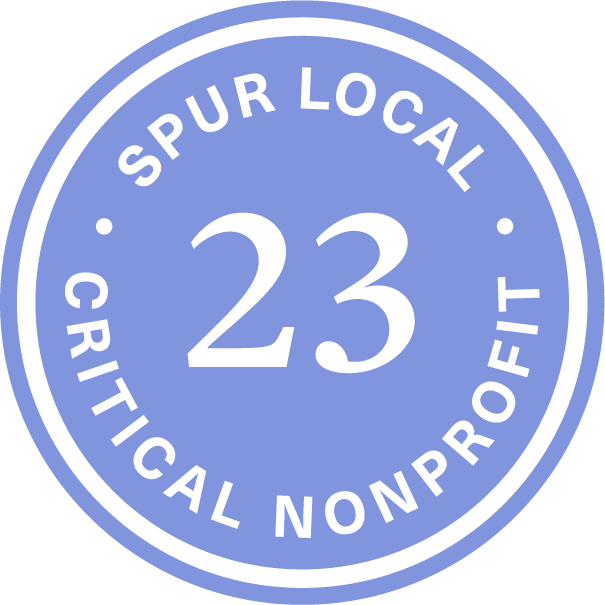The Montgomery County Hearing Examiner has weighed in to correct some misunderstandings about the conditional use process. See her correspondence here.
Read on for more best practices from Sierra Club, CBF, and other jurisdictions that are currently building community solar under conditional use.
Solar energy generation (in its current form) relies on flat sunny surfaces. Agriculture, since the practice began, has also relied on flat, sunny soil. Wise planners saw the potential conflict between these land uses long ago and began to find ways to balance the need for renewable energy and agriculture.
ZTA 20-01- that would allow 3 square miles of industrial solar in Montgomery County's Agricultural Reserve on productive soils and provide scant protections for forests or water quality - is coming up for a vote at the County Council on 1/26.
This provision has not taken advantage of the best practices of experts or other area jurisdictions that are siting the very same community solar we are after on degraded lands and through conditional use, taking care of productive soils.
There is still time to ask the council to use best practices in siting solar in MoCo. Take Action Here
Update - Sierra Club has said the previously quoted siting policy on their website is not accurate as it is from 1978 (but accessed on their website this week but as of 1/29/2021 it has been taken down). According to their email, this is the updated solar policy. (solar parts highlighted by MCA). This policy does not mention ground mounted solar however on p 13 seems to set a preference for rooftop solar:
"Many opportunities exist in and adjacent to our communities for the local, smaller-scale application of renewable technologies (such as rooftop solar). Distributed clean energy involves the entire community in energy solutions, and reduces transmission impacts and disruptive transmission bottlenecks. The Sierra Club supports properly sited and designed local and district energy projects, and calls for measures to ensure that local, smaller-scale projects have access to the transmission and distribution system. Because distributed generation generally takes place in an urban or otherwise developed environment, serious siting problems or unacceptable environmental impacts are uncommon."
Land Use: The Sierra Club supports policies that protect productive agricultural land from urban, industrial, and mining development and prevent the conversion of wildland areas to agricultural use. 1. In general, land currently used for agricultural production in ways which protect longterm resource productivity should not be converted to other functions. 2. In areas not now in agricultural use, land-use classifications (including the identification of prime soils) and policies should be developed and implemented before conversion is permitted. 3. Those seeking to convert agricultural land to other uses, whether or not it is currently in active production, should bear the burden of proving that the proposed new use is more important to current and future public welfare and that no other location is feasible that would avoid loss of agricultural land; short-term economic gains to a few individuals are not sufficient grounds for reducing our stock of agricultural land. 4. Although the Sierra Club does not generally support the conversion of wildlands to agricultural use, each proposal must be evaluated on the basis of both the land’s importance for wildlife habitat and watershed protection and the characteristics of the proposed agricultural use. 5. It is important that there be wide public and professional participation in the planning process and that farmers, ranchers, and other agricultural professionals participate in land-use decisions. 6. Land-use planning should preserve cultural access rights and promote indigenous landuse and agricultural practices. 7. Zoning and land-division policy and practice should be structured to proactively protect prime agricultural lands from conversion to other uses.
Good Local Solar Policy is one that (Per Dr. Al Bartlett, Member of the Solar Working Group):
- "supports, promotes, and maximizes economically feasible use of" non ag land
- "defines what land should not be used, favoring 'marginal' land over prime productive (USDA Class 1-3) land"
- "promotes or requires agriculture-friendly practices"
- "assures adequate, timely public notification and input"
- "Such a policy would promote greatest feasible solar development on available non-agricultural sites, including rooftops, landfills, and brownfields... Most importantly, it allows the locality to define (ideally, through public discussion) what types of land it wants to exclude from the small amount that solar development will require... To the greatest extent possible, policy should favor use of lower quality land over prime and productive land used for farming."
- "It should include requirements of solar developers for adequate and timely notification of residents - those near a proposed project site, as well as the community at large. This requirement should include an adequate public hearing as part of the review process."
"Where Solar Shouldn't Go is as Critical as Where it Does Go" - Bay Journal OpEd by CBF Land Use Director Lee Epstein 12/20
CBF White Paper "Principles and Practices for Realizing the Necessity and Promise of Solar Power"
- "Either conduct statewide or local solar facility siting studies. "
- "“Community solar” facilities may also be acceptable, if they avoid high quality environmental resources and are not placed on prime farmland or replace forest and woodlands. "
- "Avoid location of solar facilities on prime agricultural soils. Any solar operations on lesser quality agricultural fields must not negatively affect the land and soil that could prevent active farming in the future"
- "At the local level (where appropriate under state law), list solar facilities as, and use the review and approval process for, conditional or special exception uses. "
Projects -
Owings Mills
Kingsville
Dogwood (Now Closed w/700 subscribers)
Howard County - Conditional Use
Projects:
West Friendship
Hanover







